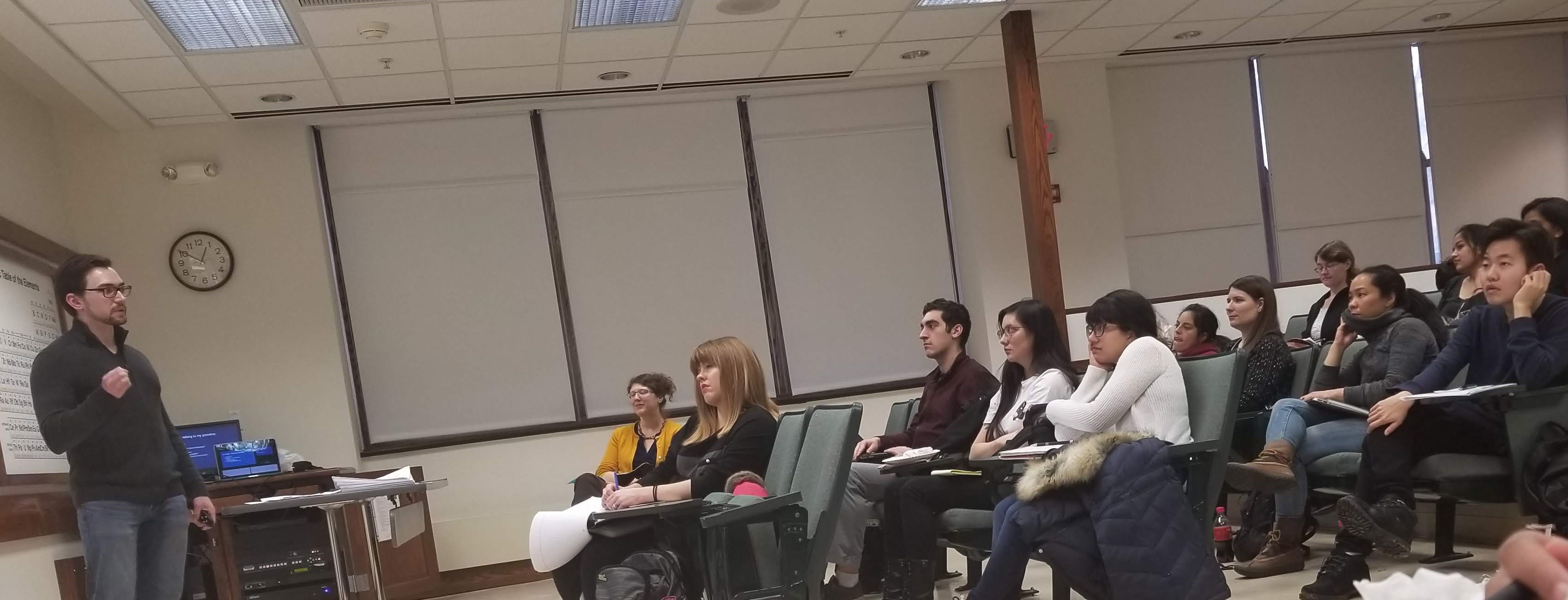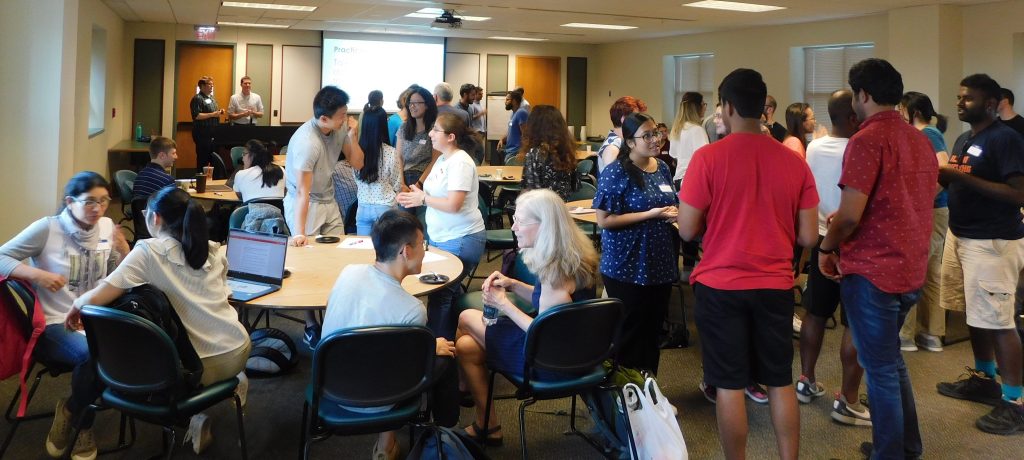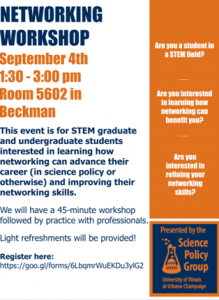Good evening everyone!
Besides nice spring weather, March also brings Science Policy Group three very exciting events at the end of March, plus new leadership opportunities. Keep reading on for more details!
Call for Leadership Nominations!
Fill out nomination form by April 3rd at midnight
The Science Policy Group is currently accepting nominations for all leadership positions. Working with the SPG gives scientists-in-training valuable and unique experience organizing events, leading groups, and meeting politicans. If you want to help bring our group into the next academic year, you can fill out the Google form here. Nominations are due by midnight, April 3rd.
Science Policy Group Information Session
March 26, 5:30p-7p, 217 Noyes Lab. Contact spg.uiuc@gmail.com for more info
If you are interested in learning more about our group and want to get more involved with us, join us for an information session on March 26! During this session, we will meet the group’s executive board, learn a brief history of our fairly new group, and some of our future aspirations. We will also discuss the opportunities available for active group members. Pizza will be provided!
SPG Happy Hour at Legends!
March 27 at 6p at Legends Bar & Grill
After learning about our group at the info session, come join us in a more causal setting at Legends Bar & Grill on Green Street. We will have a sign up showing our location. Come hang out with the executive board and grab some dinner with us!
Save the Grid! Science Policy Game Night 2
March 29, 2-5p, 1265 DCL. RSVP here.
The Science Policy Group is bringing back its popular game night, featuring a revamped ruleset and a brand new opportunity to learn about how science and policy intersect. In this unique role playing game, a natural disaster has struck your city and has destroyed its power grid. You will work with your neighbors to design an energy and water policy while working with business and the environmental lobbies to restore power. Students/Faculty/Staff are all welcome. Pizza will be provided, but space is limited so please RSVP as soon as you can!



